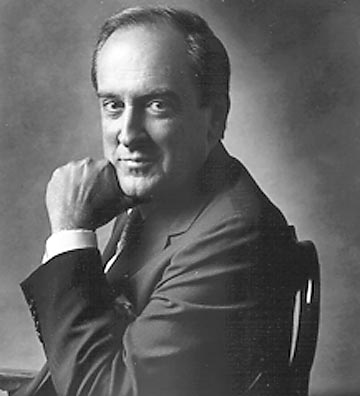
Life and Work of Roberto Goizueta
Nov. 18, 1931 – Oct. 18, 1997
Roberto Críspulo Goizueta was born in Havana, Cuba, in 1931. After graduating from the Jesuit Colegio de Belén, the young Roberto spent a year at the Cheshire Academy in Connecticut, where he learned English. He then attended Yale University, graduating in 1953 with a degree in chemical engineering. That same year, Roberto married Olga Casteleiro, his high-school sweetheart.
After Yale, Roberto began working in his father Críspulo’s business. Eager to establish his own career, however, he soon answered a blind classified ad for a bilingual chemist and accepted an entry-level position at The Coca-Cola Company in Havana. The year after Fidel Castro rose to power in 1959, Roberto fled Cuba with his wife and three children, relocating the family to the United States. Roberto would often reflect that he had come to the United States with only three things: his education, his integrity, and a job with The Coca-Cola Company.

At 35 years of age, Roberto became vice president of technical research and development – the youngest VP in the history of The Coca-Cola Company. Continuing to prove himself and rise through the ranks, Roberto was named president in 1980, then chairman of the board and chief executive officer in 1981. During his 16 years of leadership, the company consolidated its bottlers, introduced some of its most popular brands, and grew the value of its stock from $4.3 billion to more than $152 billion. “Coca-Cola” became the most recognized brand in the world and The Coca-Cola Company grew from an Atlanta-based multinational company to, in his words, “an international company that happens to be based in Atlanta.” In partnership with local bottlers, Roberto extended the company’s global reach, thereby presciently placing The Coca-Cola Company at the forefront of what was then a nascent globalization movement among U.S. corporations.
Single-minded in his dedication to his vision for The Coca-Cola Company, Roberto was cognizant of how that vision was itself held in trust for future generations. This acute sense of responsibility to the past and the future, to the common good, gave him an exceptional intellectual courage and a willingness to take intelligent risks. Even more fundamental, however, was his moral courage, the willingness to do the right thing even if unpopular: “Without integrity,” he insisted, “no other personal quality has much value … because integrity overrides everything else.”
Roberto’s deep sense of gratitude for the opportunities his adoptive country had afforded him, his equally profound commitment to the common good, and the conviction that his own accomplishments were held in trust for future generations led him to establish The Goizueta Foundation in 1992. Roberto’s example of principled, visionary leadership continues to inspire young people today. Through its grant-making programs, The Goizueta Foundation seeks to foster the emergence and development of young leaders who embody its founder’s values and commitment to the common good.